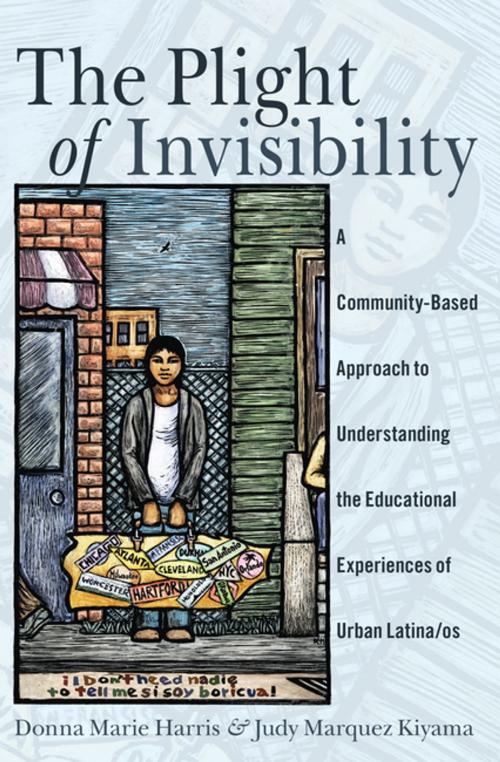The Plight of Invisibility
A Community-Based Approach to Understanding the Educational Experiences of Urban Latina/os
Nonfiction, Reference & Language, Education & Teaching, Special Education, Experimental Methods, Secondary Education| Author: | Donna Marie Harris, Judy Marquez Kiyama | ISBN: | 9781454196006 |
| Publisher: | Peter Lang | Publication: | May 1, 2014 |
| Imprint: | Peter Lang Inc., International Academic Publishers | Language: | English |
| Author: | Donna Marie Harris, Judy Marquez Kiyama |
| ISBN: | 9781454196006 |
| Publisher: | Peter Lang |
| Publication: | May 1, 2014 |
| Imprint: | Peter Lang Inc., International Academic Publishers |
| Language: | English |
The Plight of Invisibility offers unique contributions that inform the use of a community-based research approach that examines educational issues identified by urban, Latina/o communities. It offers a new lens from which to understand the circumstances of Latina/o students in schools as they navigate in social systems that are in opposition to them, thus rendering Latina/o students and their families invisible. Despite these challenges, the book offers examples of community programs and resources that support and address the needs of Latina/o students as they build resiliency and determination to persist. Community organizations and advocates, educational researchers, practitioners, students, and policymakers will find The Plight of Invisibility useful to reframe deficit discourses about Latina/o students and their families. In addition, the book is appropriate for classes including methodology courses focused on community-based research, educational policy and/or college access courses, and Latina/o studies courses.
The Plight of Invisibility offers unique contributions that inform the use of a community-based research approach that examines educational issues identified by urban, Latina/o communities. It offers a new lens from which to understand the circumstances of Latina/o students in schools as they navigate in social systems that are in opposition to them, thus rendering Latina/o students and their families invisible. Despite these challenges, the book offers examples of community programs and resources that support and address the needs of Latina/o students as they build resiliency and determination to persist. Community organizations and advocates, educational researchers, practitioners, students, and policymakers will find The Plight of Invisibility useful to reframe deficit discourses about Latina/o students and their families. In addition, the book is appropriate for classes including methodology courses focused on community-based research, educational policy and/or college access courses, and Latina/o studies courses.















